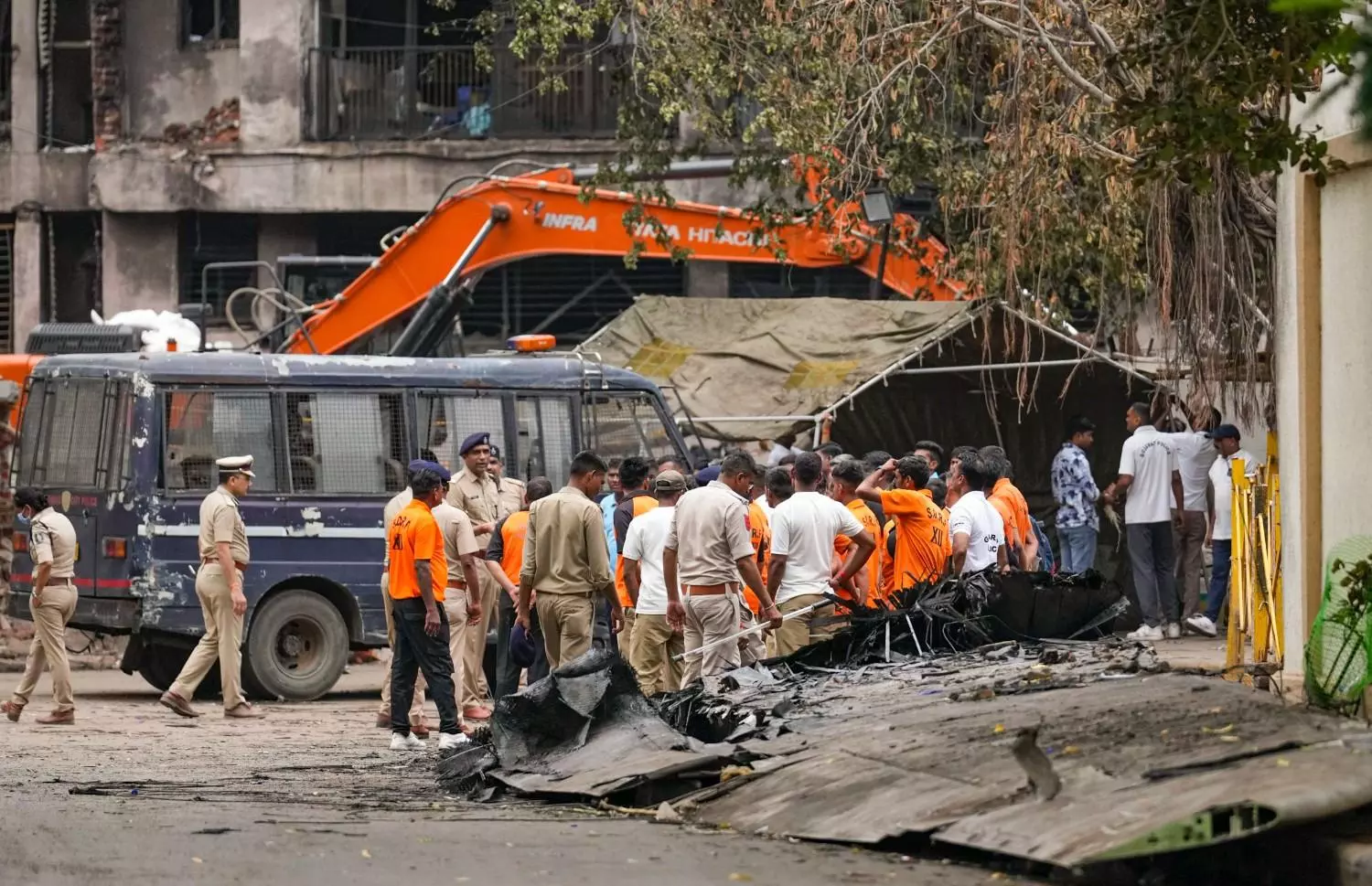
Ahmedabad Air India crash: Minister backs ‘unbiased’ probe; pilots flag key data gaps
Pilot bodies and technical professionals say the preliminary document omits information needed to understand event sequencing and cockpit context

Civil Aviation Minister K Rammohan Naidu told Parliament on Monday (July 21) that the government is “standing by the truth” and will wait for the Aircraft Accident Investigation Bureau’s (AAIB) final report before apportioning blame in last month’s Air India AI-171 crash that killed 260 people, including 19 on the ground, when a Boeing 787 went down seconds after takeoff from Ahmedabad.
Also read: Fuel cut in 1 sec? AI-171’s final minutes flag mechanical failure, not pilot error
He said the probe is “totally unbiased”, follows a “rule-based process”, and urged media and stakeholders to “respect the investigation” and avoid premature conclusions. He also said that India decoded the aircraft’s black boxes domestically for the first time, and the extracted cockpit voice recorder (CVR) and flight data recorder (FDR) information underpins the AAIB’s preliminary findings.
Post-AAIB report
The AAIB’s 15-page preliminary report, released on July 12, logged that both engine fuel control switches transitioned from RUN to CUTOFF, leading to a rapid dual engine power loss and crash. The switches were re-selected to RUN but recovery came too late to prevent impact.
In this context, it would be pertinent to recall a 2018 US Federal Aviation Administration Special Airworthiness Information Bulletin (SAIB NM-18-33) warning that fuel control switch locking features on some Boeing 787s could disengage under vibration, potentially allowing unintended movement from RUN to CUTOFF. Since compliance with the bulletin was not mandatory.
Also read: Exclusive | AI-171 crash triggered by fuel switches or engine failure?
Separately, maintenance history reviewed by Indian Express after the crash shows a stabilizer sensor snag, specifically a Stabilizer Position Transducer (STAB POS XDCR) fault; had been logged and cleared before the accident, drawing attention because stabilizer/pitch inputs feed into downstream control logic.
Pilot Unions say critical data missing
Pilot bodies and technical professionals say the preliminary document omits information needed to understand event sequencing and cockpit context. The Airline Pilots’ Association of India (ALPA-I) and other groups have called out:
- No full, timestamped technical timeline of engine shutdown, fuel switch movement, RAT deployment, and relight attempts.
- No complete CVR transcript; only two paraphrased lines without timestamps, speaker identification, or surrounding cockpit audio.
- No clarification on who was flying at the time, who attempted engine relights, or who issued cockpit commands.
- No information on whether the FDR logged actual valve positions or just electrical switch commands (Pilots say if only electrical commands were recorded, a short circuit or false signal could be mistaken for a deliberate shutdown — making it impossible to confirm what really happened in the cockpit.)
- No explanation for timing inconsistency between RAT deployment and airspeed peak (The report suggests the engines failed by 13:38:40 IST, based on RAT activation — but recorded airspeed peaked at 13:38:42. Pilots say this doesn't add up, as engine failure should have caused speed to drop, not rise.)
Unions say releasing fuller data, even in redacted form, would allow independent cross-checking and reduce speculation directed at the crew.
Minister's remarks address speculation
Naidu’s appeal for restraint came amid intense international coverage suggesting possible pilot action on the guarded fuel switches. Some Western outlets cited sources saying the captain may have moved them; Indian authorities pushed back, with the minister stressing that conclusions must await the AAIB’s final analysis and that the investigation is being conducted “through the facts”, not narratives about pilots, Boeing, or any stakeholder.
Also read: Air India crash report: ‘No pilot would do that,’ say experts
The AAIB itself cautioned against “irresponsible conclusions” after some reports singled out pilot action before all data had been examined.

